19 years manufacturer of peanut oil extractor machine .
The whole peanut oil extraction machine contains three workshops: peanut pretreat-
ment and prepressing workshop, peanut oil extraction workshop and peanut oil
refining workshop.
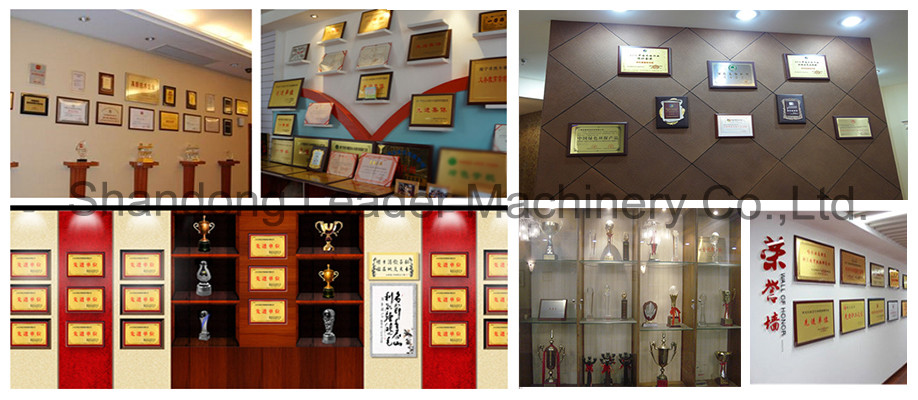
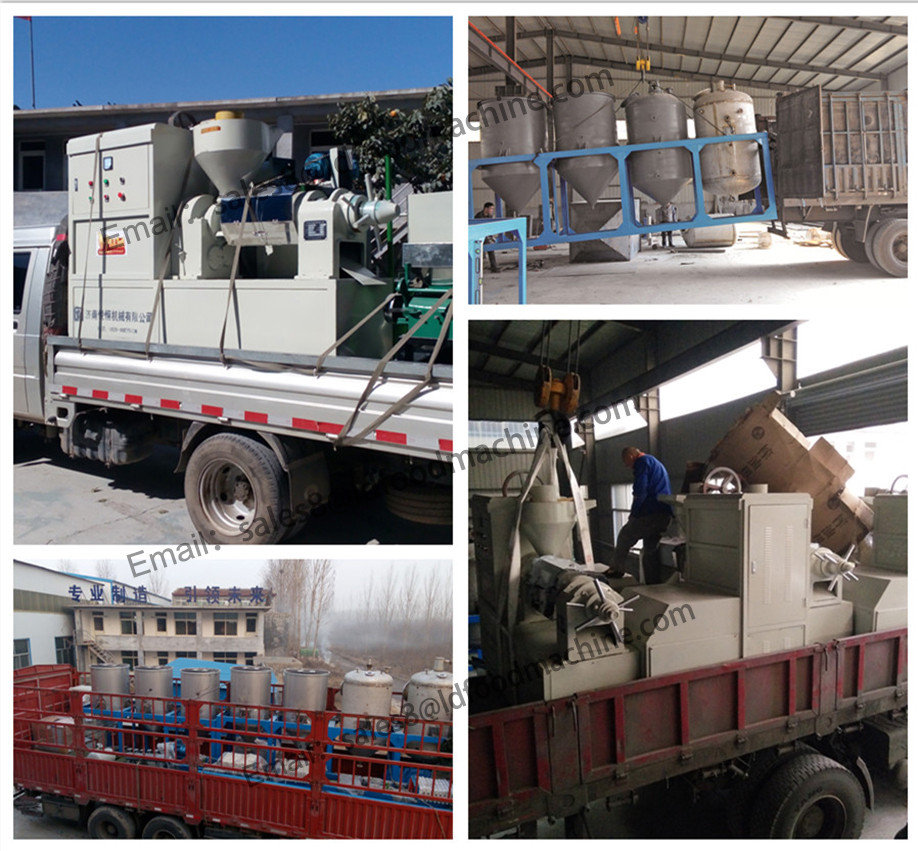
1. Craft flow for groundnut oil pretreatment and prepressing workshop
Groundnutâ magnetic box â cleaning â crusher â flaking roll â cooker â oil prepre-ssing â to extraction workshop
Main Parts:
1. Peanut: Itâs a kind of main oil seeds. Itâs used to make peanut oil around the world.
The oil content in peanut seed is about 48-55%.
2. Magnetic box: Clearing the iron impurity which migLD be in the peanut. Because the iron impurity will be harmful to the screw of extrusion machine.
3. Cleaning: This parts have different size cleaning sieves to clean the different impur-ities. After going through this
part, most of the impurities are moved from peanut.
4. Crusher: Because of the big size of peanut, it need to be crushed to small pieces. The
crusher will help to get more peanut oil from the seeds.
5. Cooker: This machine can adjust the water content of the peanut. Itâs also good for
the prepressing and oil extra-ction section.
6. Prepressing: The press machine is used to take parts of the oil in the peanut first, because the high oil content in the
peanut. Then the crude oil will sent to peanut oil refinery workshop, and the cake will
sent to peanut oil extraction workshop.
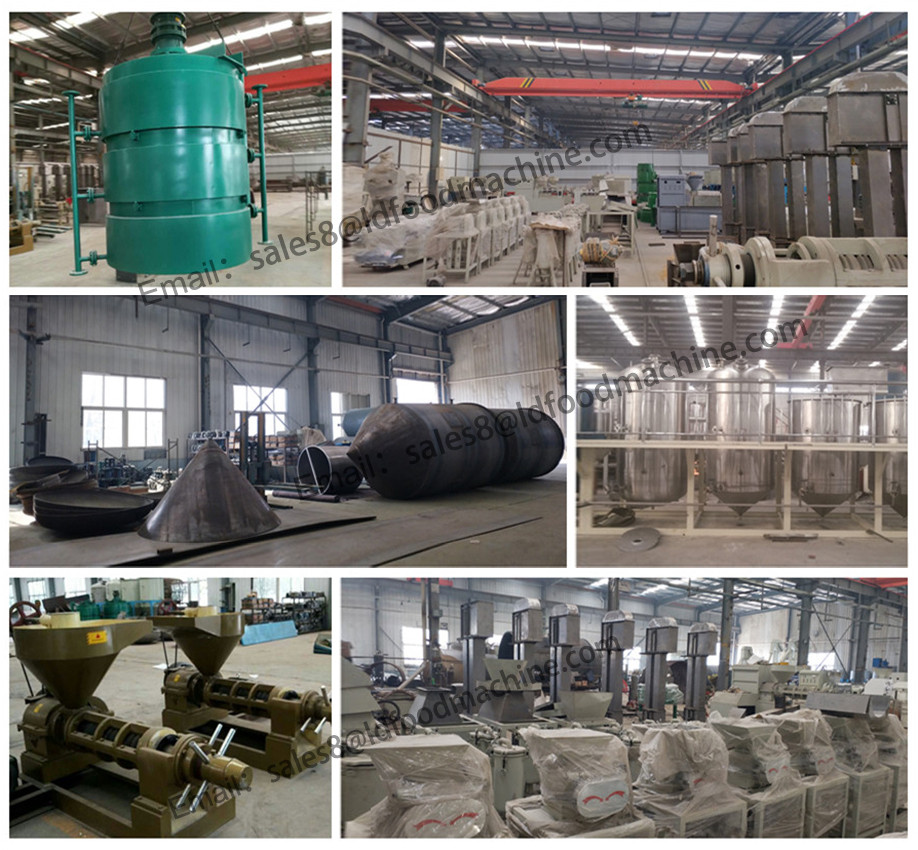
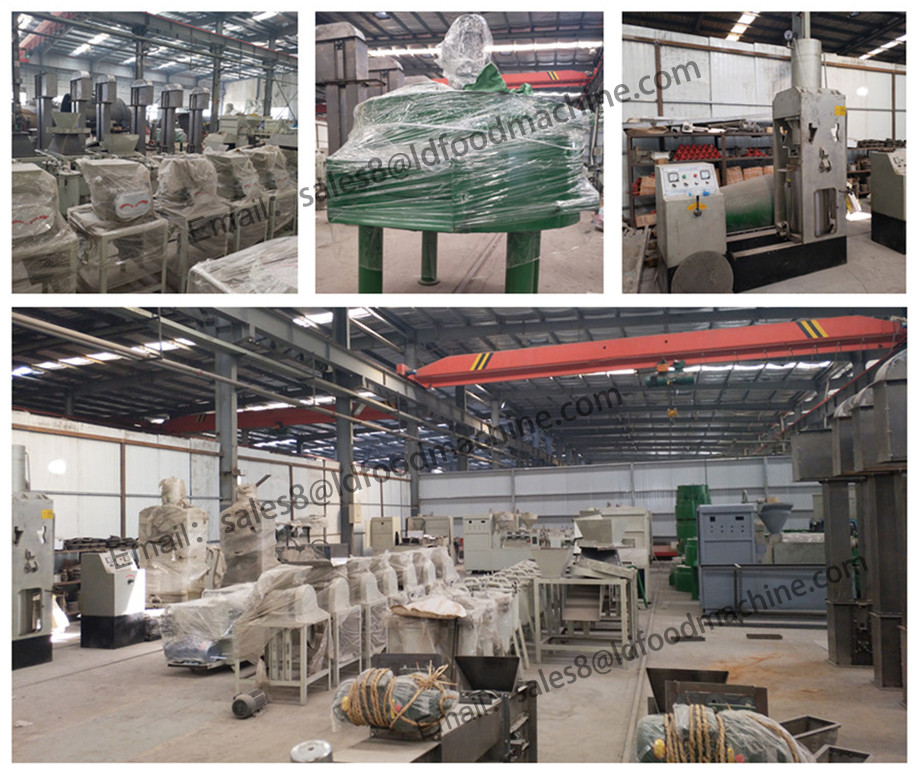
2.Craft flow for groundnut oil extraction workshop
solvent
â
extractor â mixed oil â 1st and 2nd evaporation â stripping tower â crude peanut oil
Wet meal â DTDC toaster â peanut meal
Main Parts:
1. Solvent pumps: continuously spray solvent to the rotary-typr extractor.
2. Roary extractor: spray and soak the prepressed cake with solvent so that oil fats can
be dissolved in solvent
(form miscella).
3. DTDC: used to separate the solvent from the wet meal.
4. Miscella tank 1st: pump the miscella ( oil with solvent) into the miscella 1st, then
add 10% saline water to it. The phospholipid and impurities in the miscella will react
with the saline water, at last the reactant precipitate, reaching the goal of purifying.
5. Miscella tank 2nd: the purified miscella will be pumped into it.
6. Miscella stripping: it will remove the remaining solvent in miscella. And the solvent
will be discharged to condenser for recycling.
7. Condensers: used to cooling the solvent gas separated from the wet meal and mis-cella for recycling.
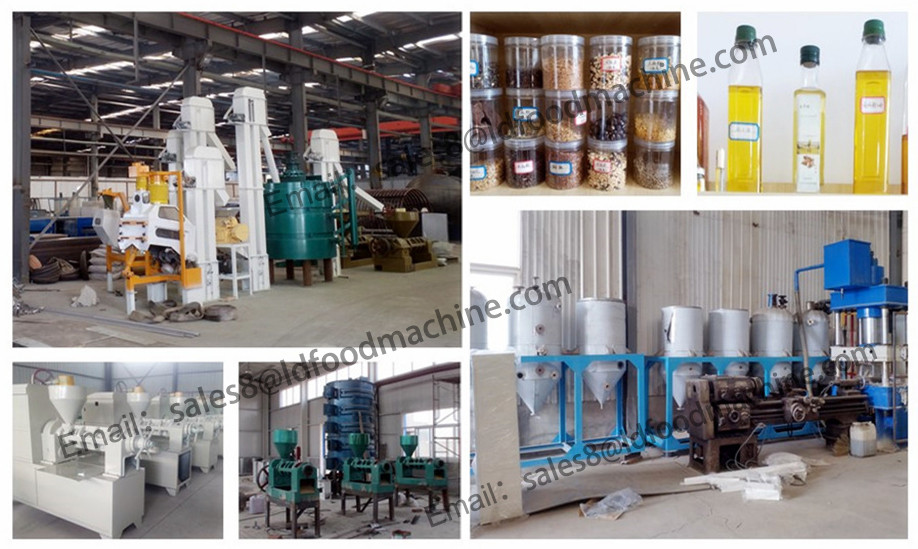
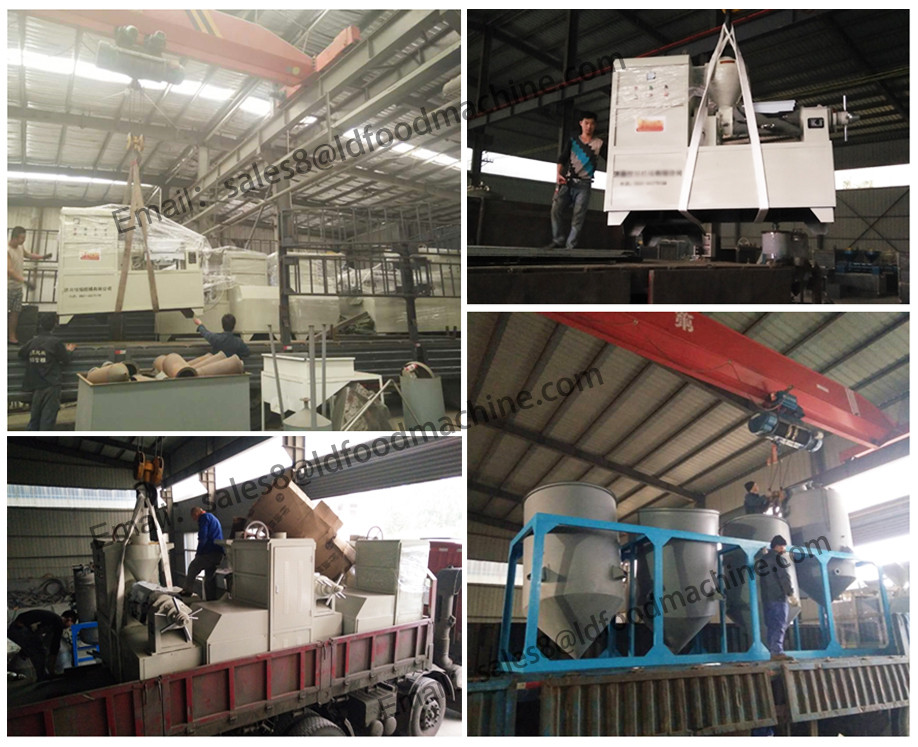
3. Craft flow for groundnut oil refining workshop
Crude peanut oil â degumming and deacidificationâ decolorization âdeodorization
â refined peanut oil.
Main Processes:
1. Degumming and deacidification: The gumming is moved by phosphoric acid and
hot water. There are two ways to move the acid in the peanut oil. One is chemical
way, the other one is physical way.The chemical way is using NaOH to react with acid.
This way is suitable for the capacity of 5-30T per day. The physical way is using
steam and centrifugal to move the acid. It is for capacity from 30-600TPD.
2. Decolorization: This step is used to adjust the color of the oil.
3. Deodorization: The
function of this step is to move the special smell in the oil. This is an important stand-ard for refined peanut oil.
StandrLD of crude peanut oil
Item |
Standard |
Smell and taste |
The original smell and taste of peanut oil |
Moisture and volatile matter (%) ⤠|
0.20 |
Insoluble impurities (%) ⤠|
0.20 |
Acid value (mgKOH/g) ⤠|
4.0 |
Peroxide value (mmol/kg) ⤠|
7.5 |
Standards of refined peanut oil
Item |
Standard |
Color (Lovibond Cell 133.4mm) ⤠|
R1.5 Y15 |
Smell and taste ⤠|
No smell and good taste |
Transparence ⤠|
Clear and transparent |
Moisture and volatile matter (%) ⤠|
0.05 |
Insoluble impurities (%) ⤠|
0.05 |
Acid value (mgKOH/g) ⤠|
0.20 |
Peroxide value (mmol/kg) ⤠|
5.0 |
Smoke point (°C) ⥠|
215 |
Our factory picture:
Our workshopes pictures:
Deliverying goods to Leaderngdao Port picture:
Machines pictures:
Our customers picture:
19 years manufacturer of peanut oil extractor machine .